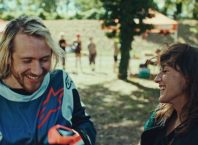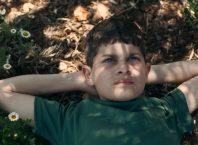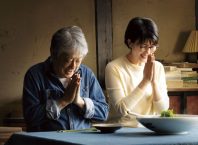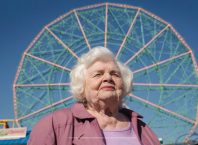Guy Pearce, I’ll bet, is the best known actor you know whose name you can never quite remember. He’s been around for a very long time – LA Confidential, his breakthrough Hollywood role, was the best part of 20 years ago – but he’s still the guy whose name hovers on the tip of your tongue. It’s a tribute to his acting, I think. When he gets a good role, he inhabits it.
According to IMDB, Pearce’s given name in The Rover – the new film by the Australian director David Michôd – is Eric. You could have fooled me. Set in a bleak, anonymous Australian landscape ravaged by rapacious robber barons and economic implosion (and yes, the two are connected), names are a rare commodity. One is just as likely to shoot a man as to say hello to him. Eric finds himself doing quite a bit of meet-and-greeting. With gun.
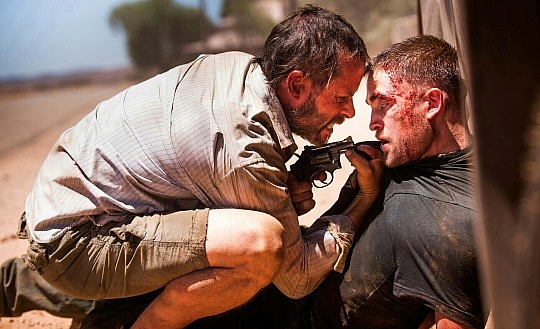
It goes like this: Archie, Caleb and Henry, three hoodlums, flee an undefined but clearly violent operation that has gone badly wrong. They’ve also abandoned Rey, Henry’s simple-minded younger brother, who took a bullet in the gut. The three runaways crash, then stall their car outside a solitary bar in a tumbleweed town. They grab the nearest – the only – alternative transportation available to hand. Eric’s car.
Now, it’s fair to assume that when it comes to men with guns, it’s always best to leave well alone. Cars, after all, are replaceable. Lives are not. But Eric is a determined sort. He goes after the three – in their car, as it happens – and gets a whack to the back of the head for his troubles. But he wants his car back, and gets himself a gun to help with the task. He also acquires Rey, who wants to know why Eric is driving his brother’s car, but is too weak from his wound to do anything about it. Rey (played against type, and quite well, by Robert Pattinson) wants to catch up with his mates, and knows where they are headed, a day’s drive away. Eric wants to catch up with them; but not just to recover his car, judging from the gun tucked in the waistband and bleakly murderous look in his eyes. Rey’s utilitarian function is to lead him to the hoodlums’ lair. What will happen there is anyone’s guess.
The Rover – Michôd’s second full length directorial gig after the superlative Animal Kingdom – is founded on a brutal, almost Biblical nihilism. An eye for an eye and a bit more besides. Being a bit cynical, I suppose it is to be expected that Eric and Rey form some sort of bond as they traverse an Australian landscape left to waste. It isn’t quite a post-apocalyptic world, but rather one that has regressed to a point where a man’s word can never be his bond. US dollars and handguns are more reliable tools of commerce. So, that the two find a common language outside the uses of violence seems a bit unlikely. But the two pull it off well, albeit in frequently ambiguous fashion.
What did strike me as unsatisfactory about The Rover are the wilful abstractions that Michôd scatters about the film. Australia, we can tell, has become something of a magnet for the undesired and undesirables, even as it falls apart. From references to mining to a scene where a heavily-guarded goods train sweeps across the desolate landscape; the curt reference at the beginning of the film that it is set ten years after “the collapse”; the not inconsiderable military presence, albeit one designed to exacerbate rather than mitigate the attendant violence. They give the film a suitable ambiguity, but this at times extends to being something of a distraction. That loyalty is a near-nonexistent commodity in this strange new world does not surprise. Why Eric is so determined to recover his car makes sense eventually, but seems a bit too remote to ring true. It’s a strong film, mostly an unsentimental film. There are few things alive we can depend upon as much as we can upon a gun, it seems.
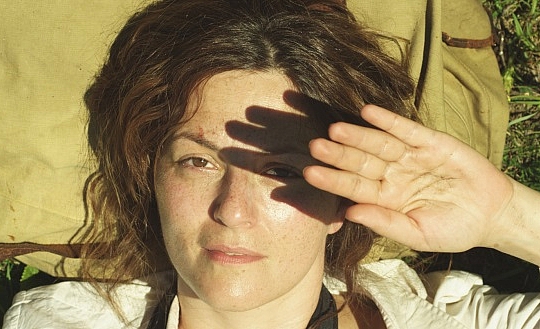
As it happens, the unnamed protagonist in The Wall has little to depend upon other than a gun and her wits. But it is a far more philosophical film, one that explores the furthermost boundaries of our emotional selves, and how far these can remain intact if unsupported by the camaraderie of fellow man.
Our protagonist – Martina Gedeck, whose imposed emotional restraint here strongly recalls her best known role, the spied-upon actress Christa-Maria in The Lives of Others – goes on a trip, with her uncle Hugo and his girlfriend, to an isolated hunting lodge in the Austrian Alps. Hugo and his girlfriend decide to visit the nearby village; the woman remains. When they haven’t returned by the next morning, she sets out to investigate what has happened to them. And discovers that she is trapped, enclosed, within an admittedly large but still desolate patch of woods and orchards, by an invisible wall.
Directed by Julian Pölsler and adapted from the 1963 book by Marlen Houshofer, The Wall prompts a question nowhere near as improbable as its metaphysical mise-en-scène: If forced into the deepest recesses of our mind and emotions, will we discover what it is that makes us human? And will confronting this essence comfort us or drive us to madness? It’s a pertinent question in our current age, where the ties of our social world are weakening in individual strength even as they multiply in numbers. More of us define the richness of our social world in terms of Facebook likes and followers on Twitter. Our unnamed protagonist, on the other hand, has just her uncle’s dog, Lynx, for company at first; later, she discovers a cow, who she names Bella, and two cats.
From a utilitarian perspective, she grows in stature; hunting deer with a high powered rifle, planting and harvesting crops as, over time, it becomes clear that whatever forces are keeping the world at bay are not about to let up. Emotionally, it’s another matter. “I could have sat at home and waited, but again and again I felt driven to do something about the uncertainty,” she muses. But what is there to do? Physical self-sufficiency is accompanied by an emotional dependency that sometimes seems to border on desperation. Even as she explores her physical terrain – and the limitations it places on her – the boundaries of her mind threaten to close in and enclose her.
It’s strange, how much we need others around us to define how we think about ourselves. The woman reaches this understanding herself, thinking about her dog’s unreserved devotion to her. Megalomania makes us believe that we are always at the centre of someone else’s world. But the dog shows her that it is an elaborate facade; we construct it to protect our fragility. It takes the extremity of her circumstances to reach this understanding. Who knows what we need to bring this home to us.
The Rover (2014)
Directed by David Michôd, written by David Michôd and Joel Edgerton
Starring Guy Pearce, Robert Pattinson, Scoot McNairy
103 mins, English, w. Hebrew subtitles
The Rover will be screened at the Jerusalem Film Festival on July 16th at 19:45; July 17th at 18:30; July 19th at 12:30. Tickets may be ordered online via the festival website.
The Wall (2012)
Directed by Julian Pölsler
Starring Martina Gedeck
108 mins, German, w. English and Hebrew subtitles.
The Wall will be screened at the Jerusalem Film Festival on July 16th at 14:45. Tickets may be ordered online via the festival website.


